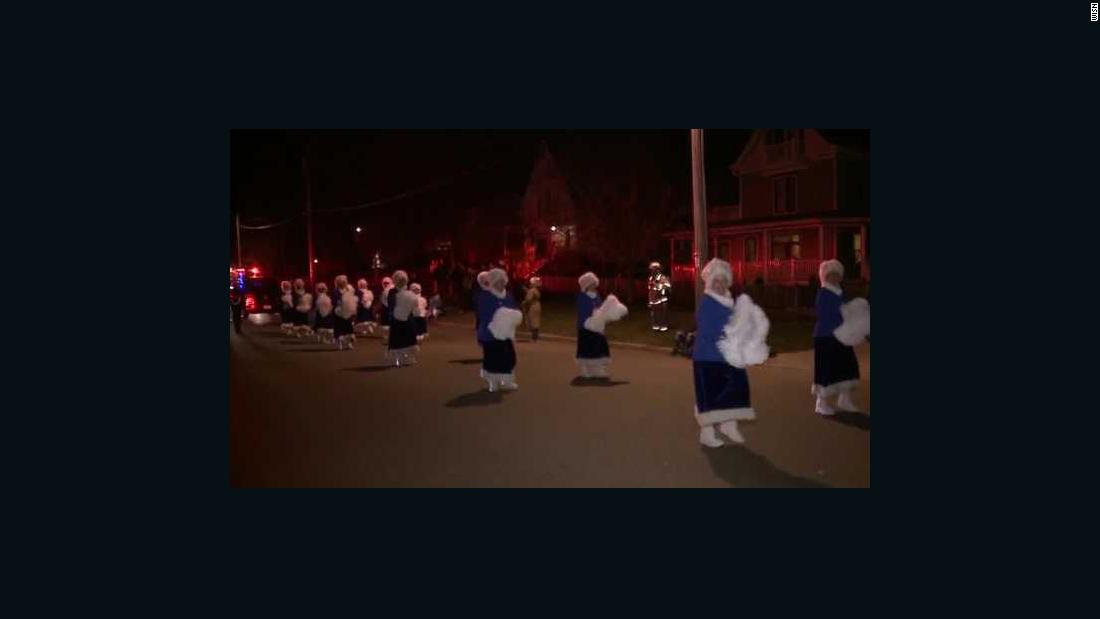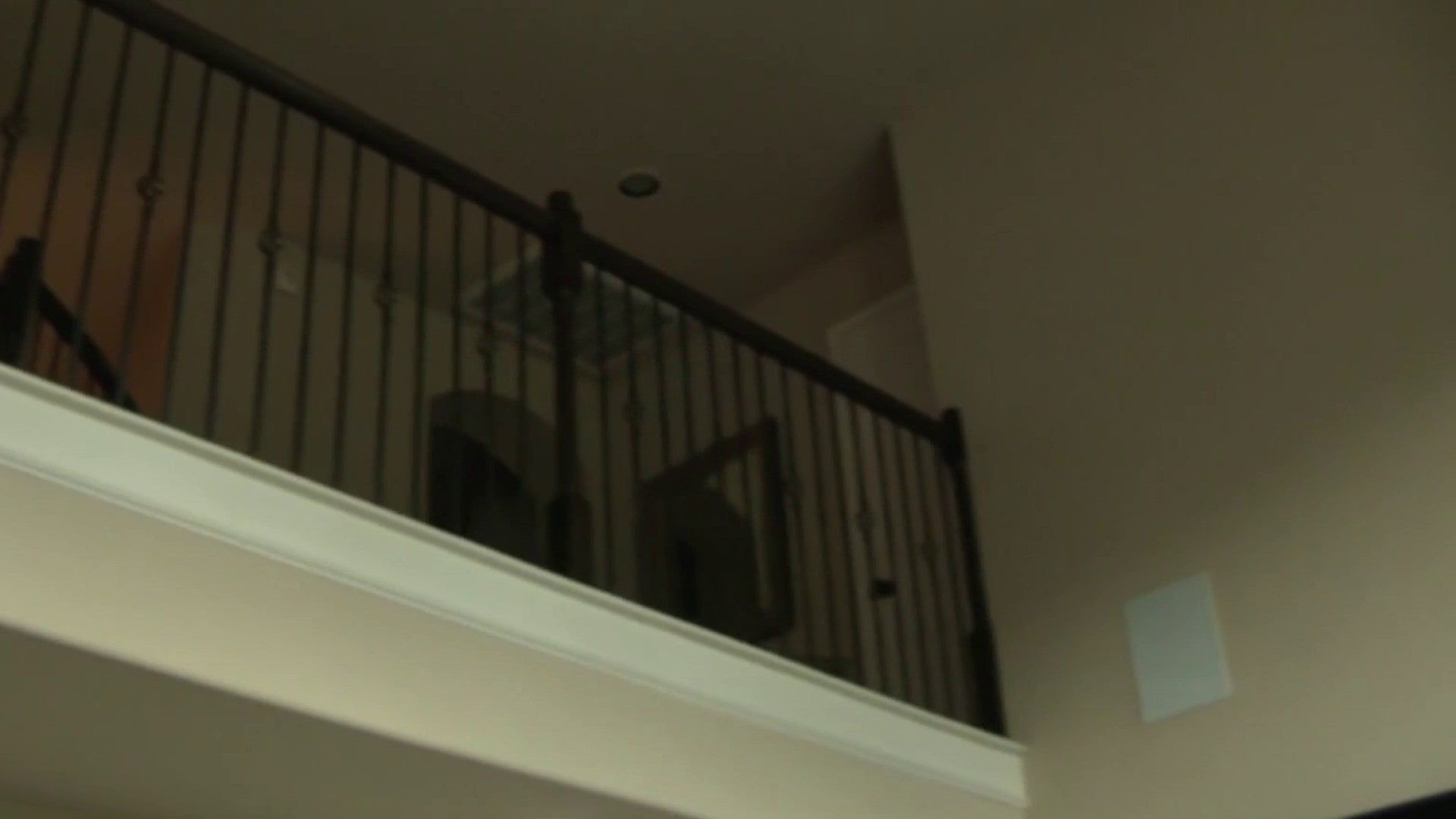Electric Performances Power a Poignant Mud Row at Stages
Dominique Morisseau’s family drama introduces us to two generations of sisters. The post Electric Performances Power a Poignant Mud Row at Stages appeared first on Houston Press.


A house is much more than its wood beams and plaster. Within its walls can live generations of pride, shame, and perseverance, and in Dominique Morisseau’s family drama Mud Row, now playing at Stages, we get to meet two of those generations.
In 1963, sisters Elsie and Frances share a house in the East End of West Chester, Pennsylvania. The two-story, with floral wallpaper, plastic on the couch, and hardwood floors, was left to them by their late mother, a prostitute. Elsie, embarrassed by that legacy and ashamed of their family’s past, has an eye on elevating her status through a “highfalutin gentleman” friend. Frances, on the other hand, is looking to change society through protesting for civil rights.
“She wants to disrupt it. I want to live in it,” Elsie observes.
Decades later, in 2010, Regine finds out that Granny Elsie left the deed to the house, vacant since Elsie died five years earlier, in Regine’s name. Regine hasn’t set foot there since she was a teen but now returns with her husband Davin to access the house’s condition. There’s an offer on the table from someone who wants to knock it down and put up a parking lot, and Regine is more than ready to accept the first offer if it means washing her hands of the place.
“I am detached,” Regine says.
“Not in blood and legacy,” Davin argues.
Their conversation takes a turn when Regine realizes someone is living in the house. She fears it’s “squatters or addicts,” and she’s right. It is squatters, but those squatters are Regine’s estranged sister, Toshi, and Toshi’s boyfriend, Tyriek.
A self-described “black sheep,” Toshi has been squatting in the house for three months. Toshi has a history of scamming to pay for her drug addiction, which includes running up $8,000 on Regine’s credit card, stealing her car, and pawning Aunt Frances’s locket, but she is now clean and believes the house is owed to her.
“We have embraced it like our inheritance,” she tells Tyriek.
As such, when she realizes someone is preparing to take the house from them – and sure that it can’t be Regine – Toshi is ready to defend it by any means necessary.
Morisseau is a Tony-nominated, MacArthur Genuis Grant Fellow, whose work we’ve been treated to by multiple theaters over the last few years, including productions of Skeleton Crew, Paradise Blue, and Pipeline. Her stories are grounded in the Black experience, and the time-jumping Mud Row, which premiered in 2019, will be thematically and lyrically familiar to audiences. Morisseau explores progress, pride, and generational inheritance but though it’s heavy with history, it’s never static.
Director Rachel Dickson draws clear lines between eras while maintaining an emotional throughline. Her staging captures how history lives through the walls of the house and how every moment echoes across time. “Different choices, same soul,” is a phrase used. The result is a production that feels both intimate and expansive across time. Dickson resists melodrama, trusting Morisseau’s words and her cast’s talent.
LaKeisha Rochelle Randle’s Regine is tightly wound, self-protective, and, yes, detached. Randle captures that surface coolness without losing the emotional undercurrent beneath it, which makes Regine’s eventual confrontation with her sister all the more satisfying. As Toshi, Ashlyn Evans projects defiance from her first moments onstage. She carries crystals and claims premonitions, but her bravado masks deep insecurity. When she realizes the person she must face is Regine, that swagger falters in an instant. It’s a powerful beat Evans plays with vulnerability and restraint.
Opposite the two, as Davin and Tyriek, both Roc Living and Brandon Morgan skillfully walk the line between support and confrontation.
As Davin, Living brings an easy warmth and steadiness to the role. Living’s calm demeanor and physical presence make him a reassuring anchor, even as Davin’s own worldview takes a hit in certain moments. Per usual, Morgan is a standout, mining every bit of physicality the role offers, especially in a hilarious moment when Tyriek and Toshi attempt to fake a crime scene. He’s unafraid to push back against Toshi, but also firmly in her corner and willing to follow where she leads.
In the 1960s scenes, Kiya Green and Mariah Baillie bring an equally rich dynamic to Elsie and Frances. Frances sums up their conflict at one point, saying, “My fight or your frailty,” and both actors embody those traits completely. Baillie’s Frances is principled and passionate, while Green’s Elsie is ambition tempered with shame, painfully clear during Elsie’s raw outburst where she snaps at Frances to “stop coloring it with honor,” in regard to their mother’s past. Their chemistry lays out the play’s emotional stakes.
The house itself is more than a setting; it’s another character in Mud Row. The entire play unfolds within its living room, designed by Joyce He, a homey space extending from front door to dinner table, with a staircase leading upstairs. Props by Jodie Bobrovsky fill in the details, from a pot of glue to a couple of baseball bats. It feels aged and lived in, but it’s the directorial and design flourishes that make the house come to life.
Scenes from the past often open with Elsie and Frances standing on opposite sides of the stage, framed and boxed in before stepping into the full space of the house. Their scenes frequently end in still tableaus that echo the family photos on the walls, like frozen moments that literalize each memory we see.
The house glows and pulses — red, purple, magenta, green — under Frank Vela’s lighting designs. Toshi believes that colors have energy, and that energy radiates through the walls and makes the set tremble. Along the base of the stage, the outline of tree roots glows, tying the house’s physical foundation to its emotional and ancestral ones.
“Those roots, they look like they’re going to bulldoze this place anyway,” says Toshi.
Similarly adding color to the production is costume designer Gisell Rubio, who nails the specifics of each character, from Frances favoring the practical to Elsie preferring the pretty, and the business casual of Regine and Davin to the vagabond-style of Toshi and Tyriek.
Sound design by Christopher Bakos and Anthony Barilla quietly underscores the shifts in time and tone, smartly letting Morisseau’s language remain front and center. After all, Morisseau is one of the most important voices in American theater and much deserving of such a richly layered and emotionally resonant production, which is exactly what Stages has mounted.
Performances will continue at 7 p.m. Wednesdays through Fridays, 2 and 7 p.m. Saturdays, and 2 p.m. Sundays through November 2 at The Gordy, 800 Rosine. For more information, call 713-527-0123 or visit stageshouston.com. $25-$124.
The post Electric Performances Power a Poignant Mud Row at Stages appeared first on Houston Press.
























































